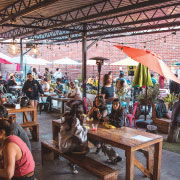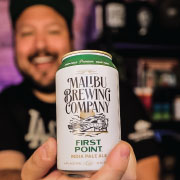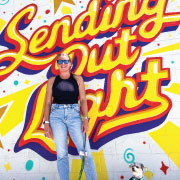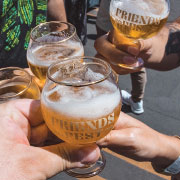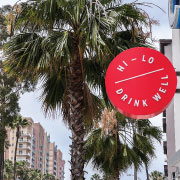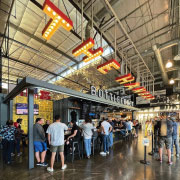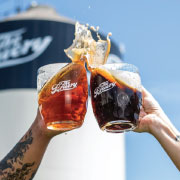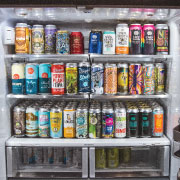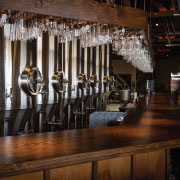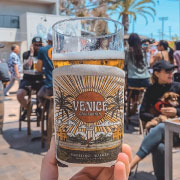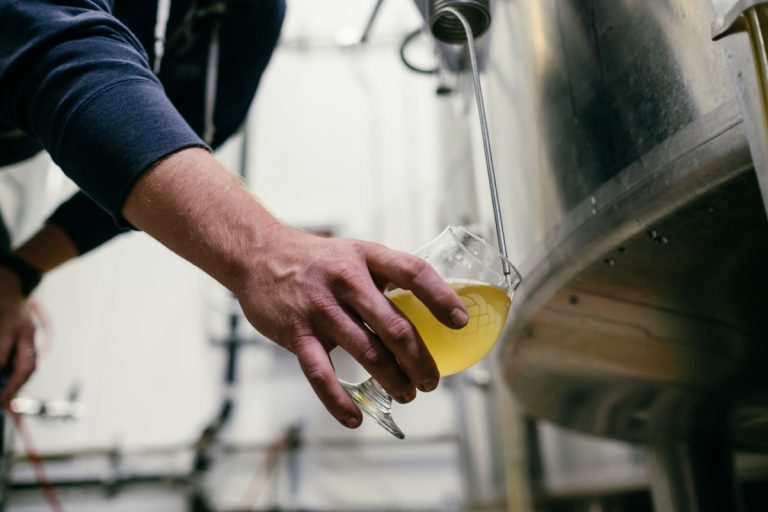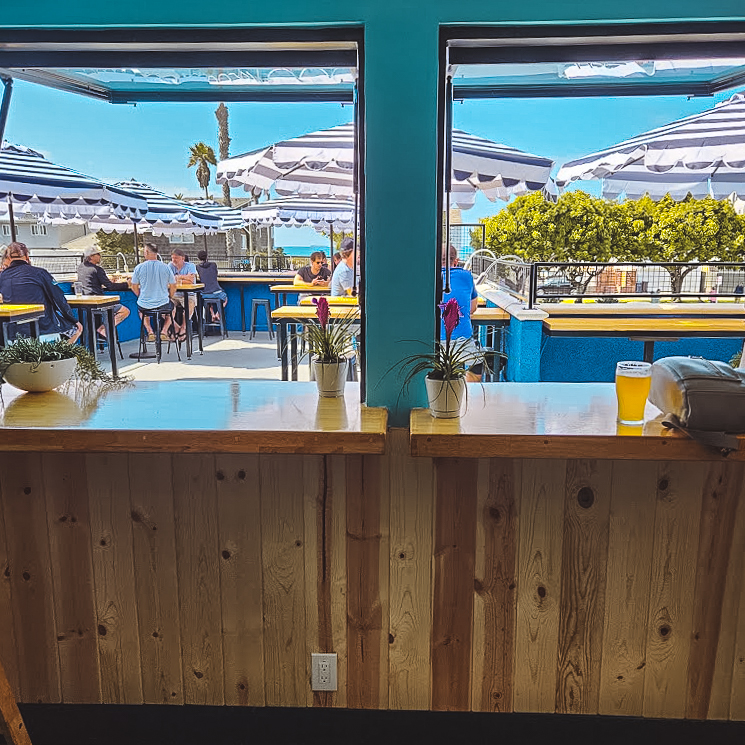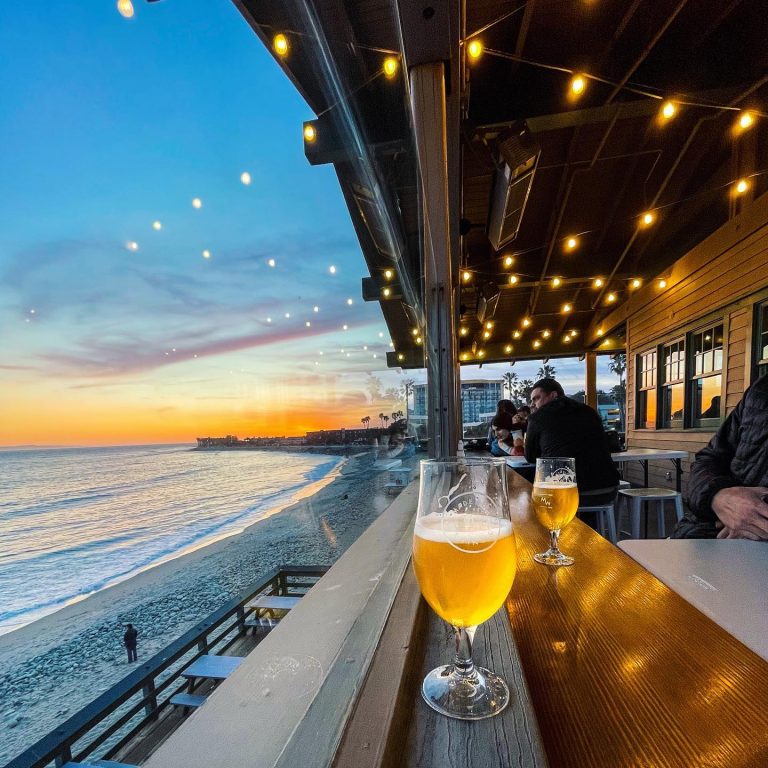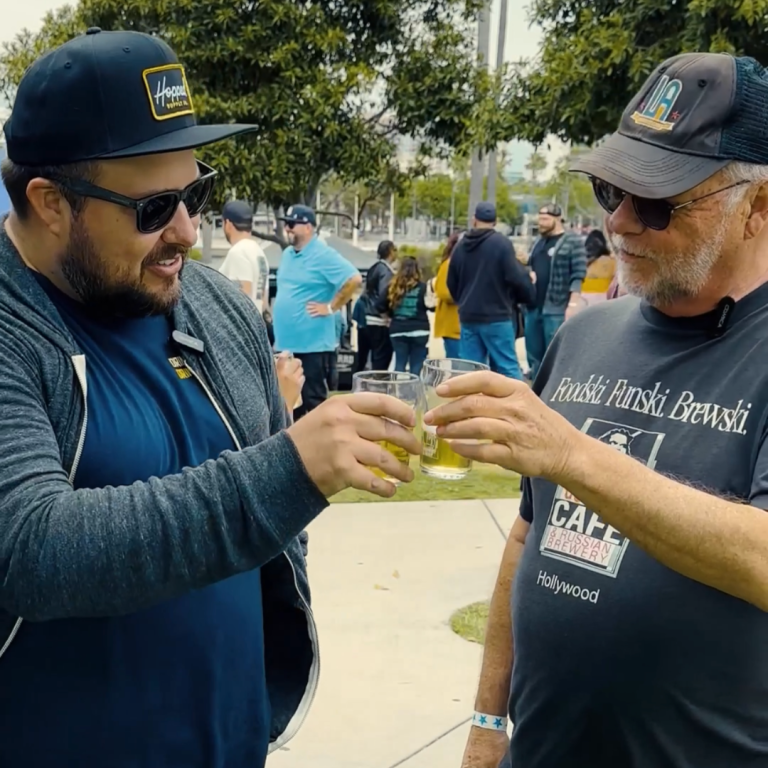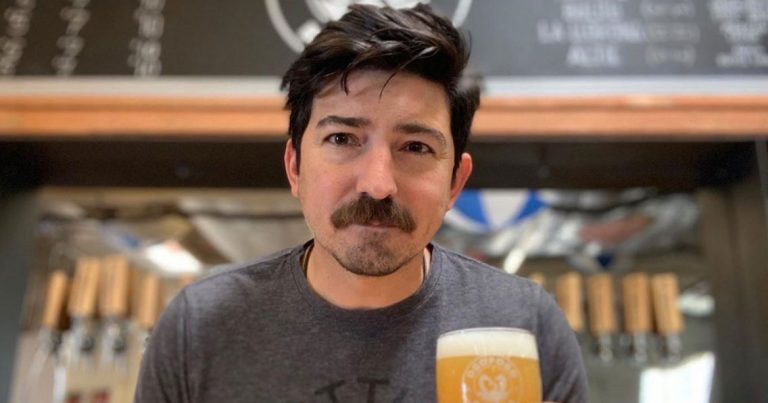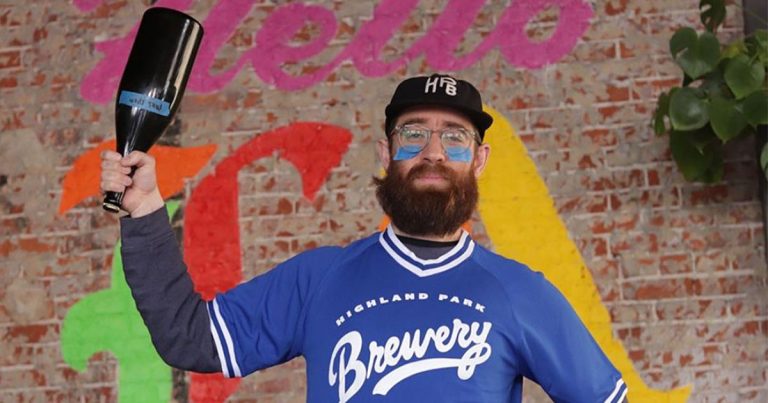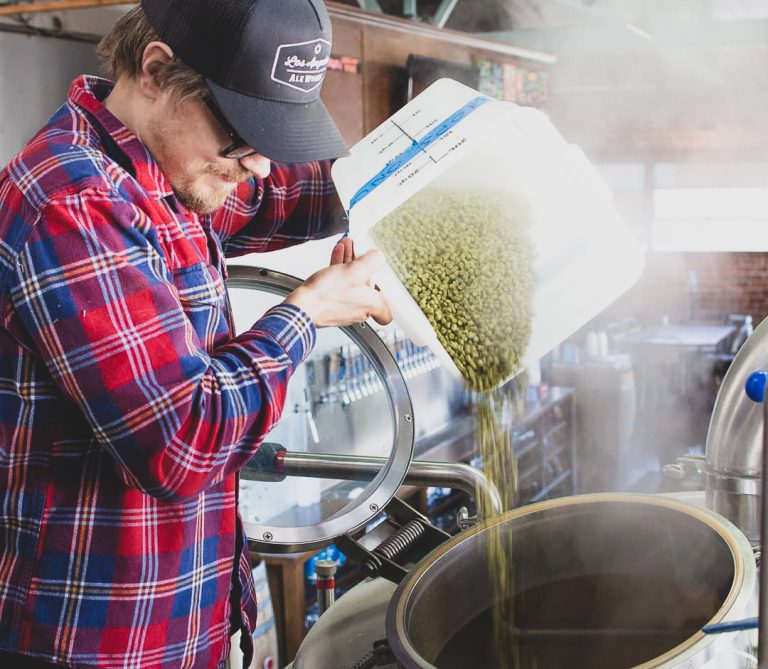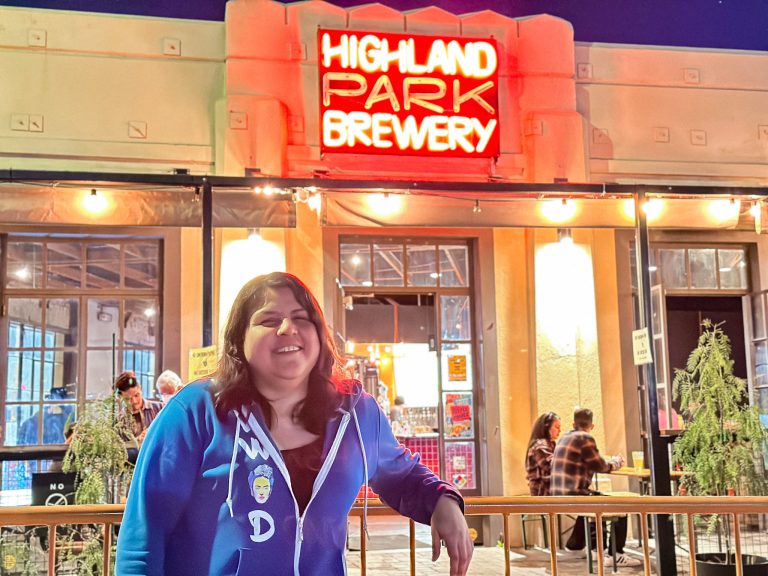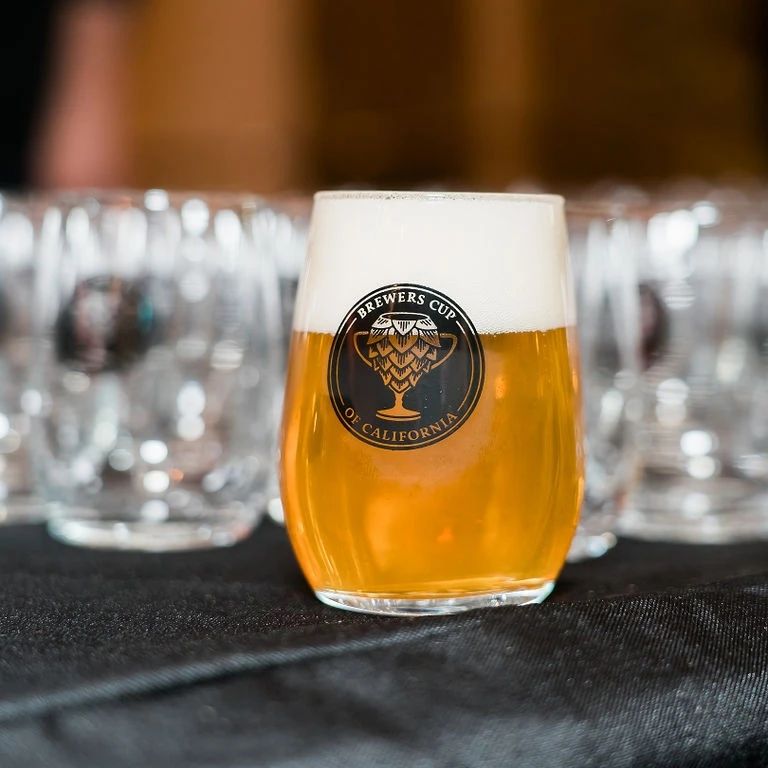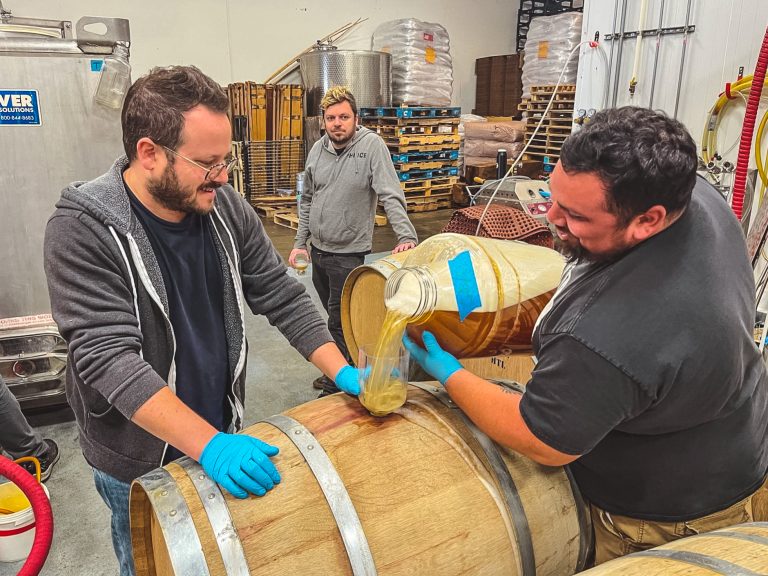
When it comes to a beer scene, Los Angeles is a toddler. In terms of breweries within this nascent scene, San Dimas’ Feathered Serpent Brewery is a newborn. Open just nine months, the Mexican-inspired taproom is bringing a much-needed Latino infusion to not just American craft beer in general but specifically to the San Gabriel Valley.
Unlike most brewery origin stories, Feathered Serpent’s head brewer wasn’t creating concoctions at home for years prior to opening his taproom. Rather, Aurelio Ramirez was looking for a business investment and along the way fell in love with craft beer. His story is one many future hopeful entrepreneurs can inspire to, which is why Hopped LA hung out at the brewery — literally the day before lockdown orders, because who knew? — to find out more about Ramirez’s origin story, how he hopes to bring Mexican culture into both San Dimas and craft beer, and why hard work and perseverance truly means something in the time of COVID-19.
Emily Krauser: What made you want to get into beer professionally?
Aurelio Ramirez: I got into craft beer kind of by accident. I work for a utility company in Los Angeles and have been there for over 10 years, and I was thinking of doing something different. Before I started working there, I was going to school to be a physical therapist, and I thought I’d go back and finish that up. At the same time, my friend was getting into entrepreneurship and investing in businesses, and he suggested I do the same. I didn’t know anything about either, but then one day in December 2016, my fiancée, Tania Arata, her cousin, Eddie, and I went brewery hopping in Rancho Cucamonga. I had been to a couple of breweries before, but I didn’t really think of anything of them. I drank Modelos and Coronas — I didn’t even know what beer was made of or that there was a craft beer scene. I remember saying to Eddie, “These are cool. It’s just a warehouse with a couple of tanks. I could build this.” Then he said, “Yeah, a lot of these guys start brewing in their garage, then they open up breweries.” I said, “Brew in a garage? You can brew beer at home?” This whole time I thought you had to be a Harvard scientist to make beer! So, I told Tania that we were going to open a brewery! I went home and started researching how to brew and how to open a brewery. Once I learned how beer was made, I was amazed and wanted to start brewing. I guess you could say I got into craft beer not because I was an expert brewer but because I wasn’t and I wanted to learn. My first homebrew was in March 2017. We sold my house to fund the project and opened Feathered Serpent Brewery on July 22, 2019.

EK: What is the story behind the Feathered Serpent name?
AR: When we were at the breweries that day, I envisioned what my brewery would look like. I pictured having Mexican or Chicano murals on the walls. So, when we were thinking of what to call our brewery, I wanted it to be something that represented our Mexican culture, and the image of Quetzalcoatl came to mind — the Mesoamerican deity that was used by the Olmecs, Mayans, and Aztecs who is the creator of the cosmos and mankind. I felt it would be a perfect image to represent us. Quetzalcoatl Brewery didn’t sound right, but Quetzalcoatl translates to the Feathered Serpent in English. Our mission is to share our Chicano culture through craft beer, so we apply this to the names of our beers too, like our Marigold Amber Ale and Pyramid of the Sun DIPA. The marigold flower is used during the Mexican celebration Día de los Muertos, and Pyramid of the Sun is the largest Aztec temple in Teotihuacán, Mexico. Beer is supposed to be fun, so we also have names that only a Chicano would get, like our No Te A-Wheat-Es wheat beer and our No Mames Haze! Hazy IPA.
EK: How are you hoping to bring Mexican and Latino culture to not only the beer industry but the San Dimas area?
AR: One way is by having festivals and events at the brewery. Last November, we had a Dia de los Muertos festival called Marigold Fest with music, food, and folklorico dancers, and we want that to be one of our annual events. We had a huge altar made of marigold flowers where we allowed people to put up pictures or mementos of loved ones that have passed that they wanted to celebrate. We’ve also had different Chicano artists come in and display their art, and I would like to have more art exhibits. Eventually, I will start adding Mexican spices and flavors to our beers.
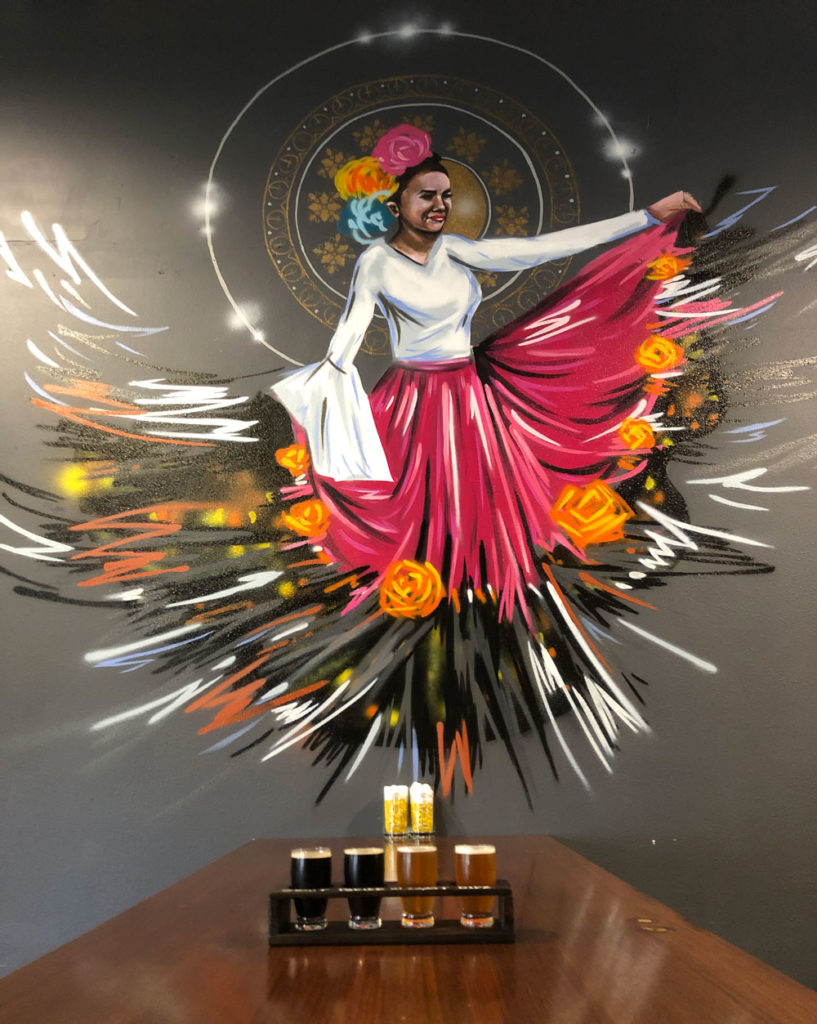
EK: What is your personal favorite beer style?
AR: My favorite beer style is a West Coast IPA. I like the bitterness and different aromas from the hops. But my go-to session beer is a pilsner, like Oskar Blues’ Mama’s Little Yella Pils.
EK: Have you found so far that L.A. brewers are supportive of each other and of you opening a new brewery?
AR: Yes, I think that was one thing that I was attracted to about this industry. Everyone helps and supports each other. I’ve met a few brewers along the way that I would consider mentors. They took time out of their busy schedules to help me and I’m grateful for that, and I call them every now and then when I have questions.
EK: What are the best and most difficult parts of running a new brewery?
AR: We have only been open for nine months, so we are going through all of the struggles that probably any startup brewery or business has gone through in its first year. There’s a lot of things that have been difficult so far. Obviously, things have been challenging right now with the whole COVID-19 lockdown, but managing our time is probably the hardest thing right now. Running a business is a full-time job, especially in its first year, and Tania and I still have full-time jobs. Balancing our jobs, the brewery, and making time for our personal life is tough. The best thing, of course, is when a customer says, “I like your beer,” or “Your beer is good,” or “I always feel welcome here.” There’s a lot of breweries out there with a lot of options who have been doing this way longer than we have, so to hear those words is the best.
There’s been a lot of little surprises since we’ve been open. I’m an introvert; I don’t talk to anyone unless they talk to me. I knew if I wanted to learn this industry, I was going to have to start talking to people. I would talk to the person serving the beer, the person making the beer, and if I could, talk to the owner or owners of breweries to gain knowledge. Going out there and talking to people was something different for me. In February, Border X Brewing in Bell invited us to speak in front of a women’s club meeting about our brewery and how we opened. We told our story, and it was a lot of fun. When we were leaving, I asked Tania, “Did you ever think you would be spending a Saturday afternoon speaking at a brewery?” We both just laughed. We work hard to make good tasting beers and for our business to grow, but we weren’t expecting to grow personally through this process.
